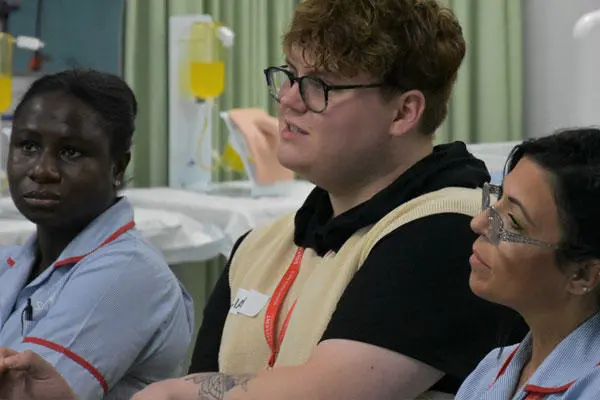
How did university prepare you for your career?
Solent University prepared me for my career in social work by teaching me about legislation, social work theories and methods, and interpersonal skills that would underpin my practice. The social work lecturers were always available to offer support and to impart their knowledge and experience to draw the best out of me.
Tell us a little about your career story so far
As my third-year placement was coming to an end, I was asked by a senior practitioner from a different department if I would like to work for them on a three-month contract. After two weeks, I was called into the office and told that they were not going to renew my contract as the learning disabilities team had requested that I work with them, carrying out Care Act assessments – I happily accepted the position. After a month of working with them, a permanent post came up and I was asked to apply. I got the job and began working with them full-time before I even graduated.


Solent University prepared me for my career in social work by teaching me about legislation, social work theories and methods, and interpersonal skills that would underpin my practice.
Tell us about what you're doing now and what it involves
A typical working day generally consists of responding to emails and making telephone calls to clients, other professionals and service providers. All communication needs to be case-noted so that there is always a record of progress and outcomes. Sometimes it is required to visit a client to assess their care and support needs. Once this is done, the assessment needs to be typed up, followed by creating a support plan and a package of care to meet any identified needs.
Mental capacity assessments may also need to be carried out if there reason to believe a person lacks capacity to make a particular decision at a particular time due to a cognitive impairment.
I also complete Community Deprivation of Liberty applications made to the Court of Protection when a person who resides in a community setting has been assessed as lacking the capacity to consent to their care/treatment arrangements, are under continuous supervision and not free to leave.
Finally, my job requires me to complete continuing healthcare checklists where someone may have health needs that require interventions that are above what the local authority are able to provide and attend multi-disciplinary team meetings to determine whether this is met by the local authority, the NHS or joint funded by both.
What tips would you give to someone wanting a career in your industry?
- Document everything – if it is not recorded, it did not happen.
- Look at your tasks daily and prioritise accordingly.
- You will need to develop your emotional resilience – situations can become quite challenging, so you need to have strategies in place to maintain your own health and wellbeing.
- Ask if you don’t know – don’t feel embarrassed if you don’t know what to do.
- Take full advantage of any training – it is crucial to aid your continuing professional development.
- Make sure you take supervision – this is a good time to reflect on your practice, raise any concerns and be supported to gain some perspective on your workload.














